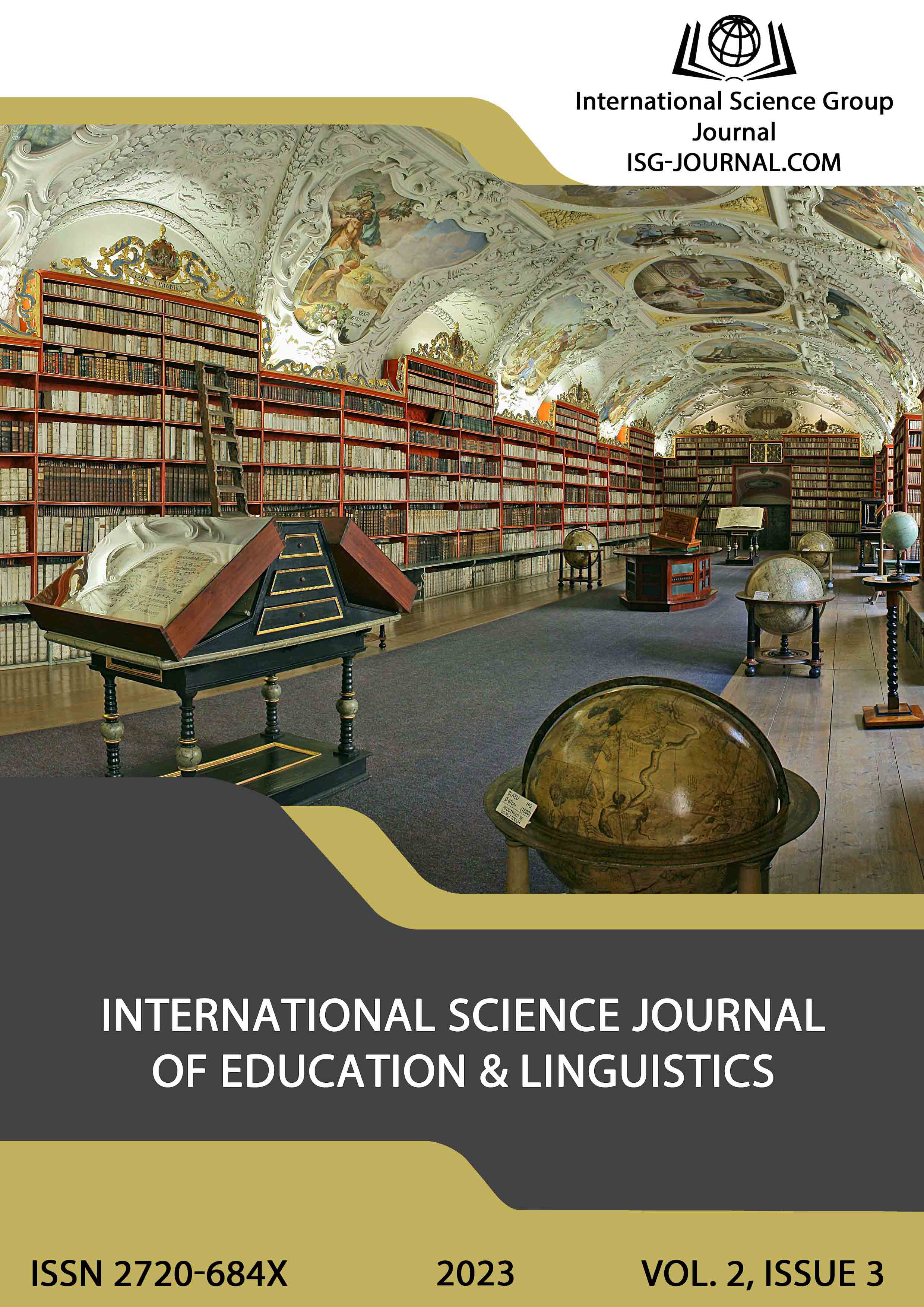Youth and the environment: is knowledge about the problems enough for environmental awareness?
DOI:
https://doi.org/10.46299/j.isjel.20230203.04Keywords:
social ecology, environmental awareness, youth, gender differenceAbstract
Today, our generation is challenged by the need to immediately solve many environmental problems, most of which call into question the possibility of continuing human existence. It is ecology that is supposed to form a new worldview of modern humanity, which significantly changes its social functions. To succeed, it is necessary to increase the percentage of people in society with environmental knowledge, which will lead to environmental awareness and further increase the possibility of the appearance of a type of behaviour aimed at preserving the environment. The main goal of the study was to identify the availability of environmental knowledge and environmental awareness among students of different ages who have chosen three different areas of study and to identify ways to improve them. The study was conducted using an open design, by way of a prospective cohort questionnaire based on the free online service «Google forms» among students of technical, medical and humanities profiles. Statistical data processing was performed using the Statistica 6.0 software package. The results showed that students in Dnipro, regardless of age, gender and chosen speciality, have the same level of knowledge about the environmental situation in the region and the same interpretation of the concept of social ecology, and the overall majority are unsatisfied with the environmental situation in the region. Real environmental awareness is low. Women pay more attention to environmental problems in the region and the world and are more likely to demonstrate a preference for supporting environmentally friendly activities. The most important thing in raising the environmental awareness of students is not only to gain knowledge, but also to transition to an active civic position. This can be done by involving young people in various events that will give a boost to real actions to improve the environment in the local community. Information should be provided in the ways they are used to receiving it - through social networks and information sources, and it can be gender-oriented.
References
Хилько М. І. Екологічна безпека України: Навчальний посібник / М. І. Хилько. – Київ: 2017. – 267 с.
Reuters: UN declares access to a cleanen vironment a human right. https://news.un.org/en/story/2022/07/1123482
FFischer-Kowalski M. Social Ecology. / M. FFischer-Kowalski, J. - Amsterdam: Elsevier Wright. International Encyclopedia of the Social and Behavioral Sciences, second edition: 2015. - pp. 254-262.
Шедловська М.В. Теоретичні основи екосоціологічної теорії. / М.В. Шедловська // Вісник Львівського університетту. – 2010. - № 4. С. 83–91.
Clark J.P. Politica lEcology. In: Encycl. Appl. Ethics. / J.P. Clark. - Elsevier: 2012 № 4. - pp 505– 516.
Garmestani A, Craig RK, Gilissen HK, McDonald J, Soininen N, van Doorn-Hoekveld WJ and van Rijswick HFMW (2019) The Role of Social-Ecological Resilience in Coastal Zone Management: A Comparative Law Approach to Three Coastal Nations. Front. Ecol. Evol. 7:410. doi: 10.3389/fevo.2019.00410
Bookchin M. The Ecology of Freedom: The Emergence and Dissolution of Hierarchy./ M. Bookchin. CHESHIRE BOOKS, Palo Alto, California: - 1982 - 383 p.
Bookchin M. (1982). Social Ecology versus Deep Ecology: A Challenge for the Ecology Movement.
Кунах О.М. Соціальна екологія: Навчально-методичний посібник. / О.М. Кунах, О.В. Жуков. ‒ Дніпро: типографія «АРБУЗ», 2021. ‒ 61 с.
Scruton Roger. Green Philosophy. How to Think Seriously about the Planet / R. Scruton – London, Atlantic Books: - 2012 - 464 p.
Стегній О.Г. Предметне поле соціології довкілля / О.Г. Стегній Соціологія: теорія, методи, маркетинг. - 2008. - №3.- С.55 - 72.
Варго О. М. Екологічна свідомість як умова становлення екологічного суспільства: дис.. канд..філософ. наук: 09.00.03 / О. М. Варго. – Харків: Харківський у-нт Повітряних Сил ім.. Івана Кожедуба, 2006.
Бацилєва О.В. Екологічна психологія для здобувачів вищої освіти з освітньої програми «Психологія»: Навчально-методичний посібник. / О.В. Бацилєва, І.В. Пузь. - Вінниця: ДонНУ імені Василя Стуса, 2019. – 15 с.
https://www.sgpinfo.org.ua/sites/default/files/pdf/gender_ta_dovkillya.pdf
Марушевський Г.Б. Етика збалансованого розвитку./ Г.Б. Марушевський. – Київ: Центр екологічної освіти та інформації, 2008. – 440 с.
Боголюбов В.М. Стратегія сталого розвитку. / В.М. Боголюбов, М.О. Клименко, Л.Г. Мельник, О.О. Ракоїд. – Київ: ВЦ НУБІПУ, 2018. – 328 с.
Kilian K. (2005) “Kosmokracja kontra technokracja.” [Cosmocracy versus Technocracy]. Sofia. Pismo Filozofów Krajów Słowiańskich 5: 325-330.
Downloads
Published
How to Cite
Issue
Section
License
Copyright (c) 2023 Стефанія Яровенко, Юлія Площенко

This work is licensed under a Creative Commons Attribution 4.0 International License.





